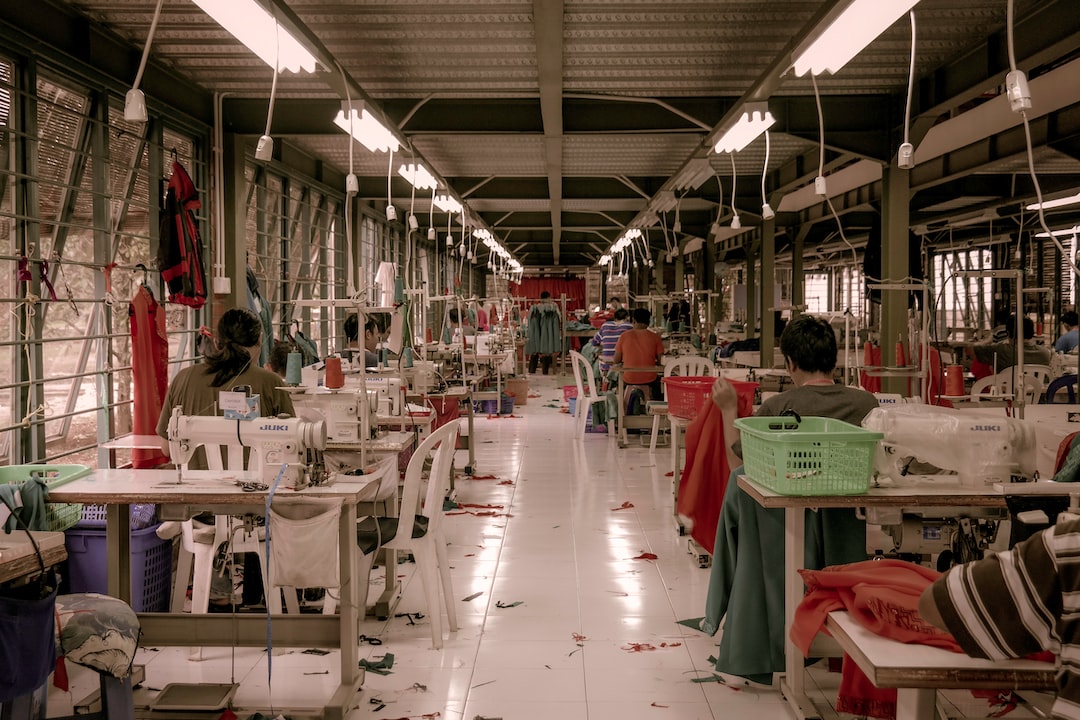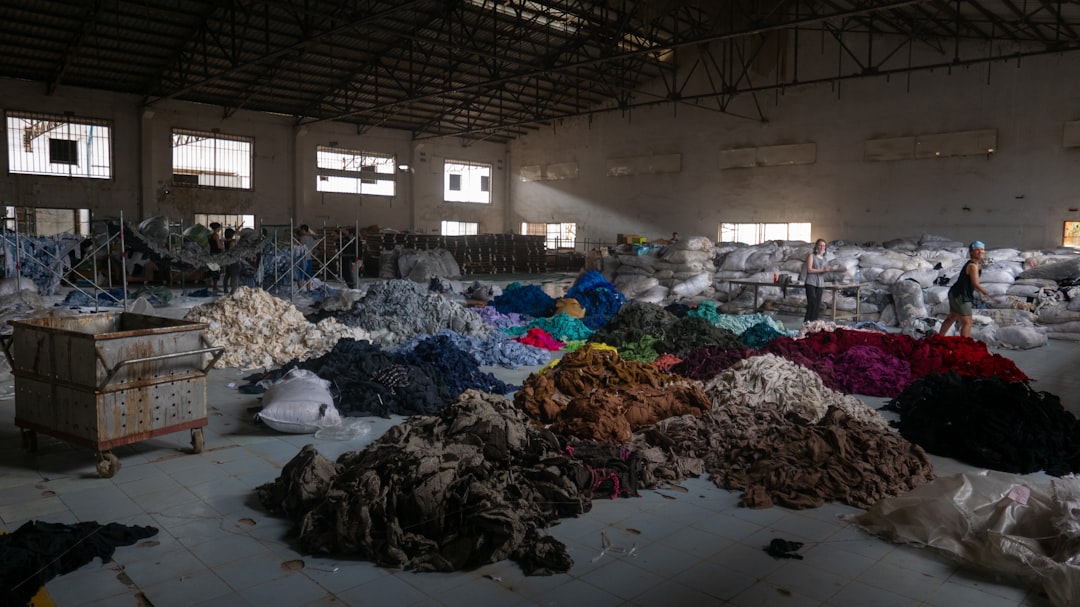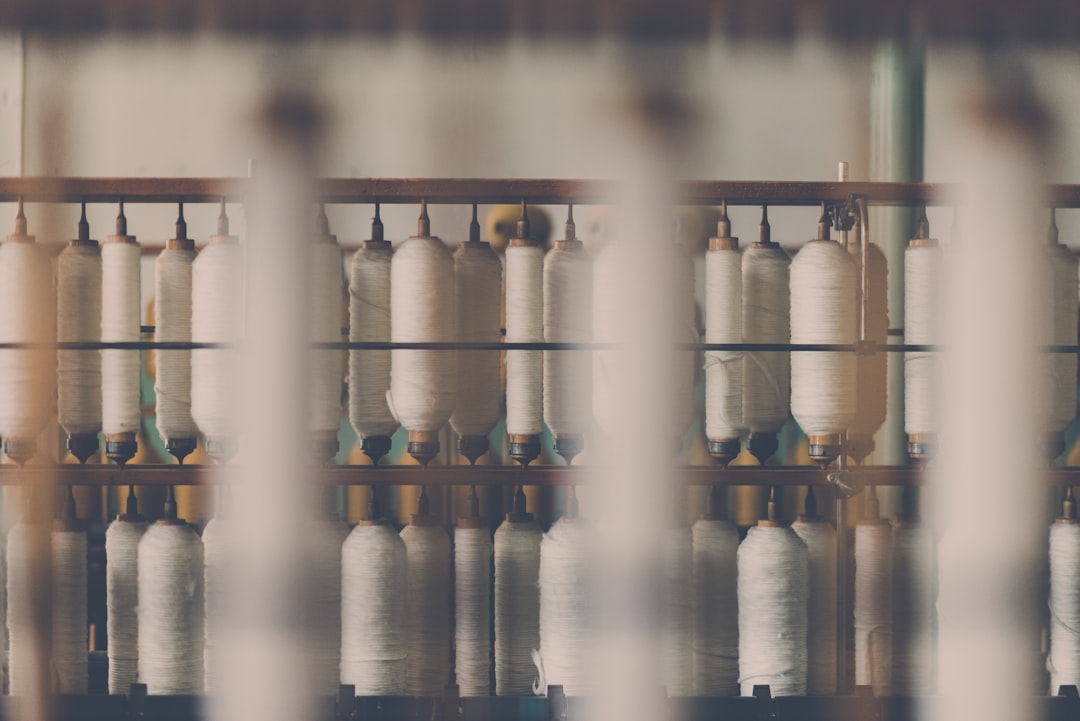The fashion industry is known for being an early adopter of new technologies, and artificial intelligence (AI) is no exception. In recent years, AI has disrupted the fashion industry in various ways, from personalized styling and design to supply chain optimization. AI is changing the way the fashion industry operates, creating new opportunities for designers, retailers, and consumers.
With its ability to analyze vast amounts of data and patterns, AI is revolutionizing fashion design and production. Fashion brands are using AI technology to create hyper-personalized fashion designs and styles, forecasting upcoming trends, and predicting the demands of the market. The result is increased efficiency, profitability, and sustainability for fashion companies and a better experience for customers.
AI is also transforming the traditional ways of shopping by providing virtual try-on platforms, style recommendation engines, and AI-powered chatbots that are changing the e-commerce landscape. Shopping is becoming more personalized and interactive, and the lines between online and offline shopping are blurring. Customers can now try on clothes in the virtual world, chat with virtual assistants, and design custom clothing, making e-commerce more engaging and interactive.
The rise of AI is also changing the supply chain in the fashion industry. Companies like Stitch Fix are using AI-powered algorithms to optimize their inventory management and decrease waste. With AI, they can make more informed decisions about product design, minimize returns and make more accurate predictions about future purchasing trends.
In this blog post, we’ll explore the latest AI technologies that are shaping the fashion industry, their application, and how they’re changing the future of fashion design, production, e-commerce, and supply chain management. Let’s dive in and discover the endless possibilities of AI in the fashion industry.
Customized Fashion Design Using AI: Style-IT
In recent years, the fashion industry has witnessed an exponential rise in AI technology. With the advent of AI, we have seen a transformation of the traditional fashion industry as we knew it, into an industry that leverages on technology to provide personalized and customized experiences to customers. One such AI-based solution that has been making waves in the industry is Style-IT.
Style-IT is a customizable fashion design platform that uses AI algorithms to generate personalized designs based on the user’s body type and style preferences. The software takes into account the user’s height, weight, and body shape to create the perfect clothing piece that will offer the perfect fit. Style-IT also allows users to choose their preferred fabric, colors, and style options, making the entire fashion designing process entirely tailored to their exact specifications.
In the past, the fashion design process was an expensive and tedious one that relied heavily on human talent and expertise. With Style-IT, we are seeing a significant shift in how fashion designs are created, with an increased reliance on AI technology. Style-IT is changing the way fashion designers approach their work and improving the overall design process.
The use of AI in fashion design has also made it possible to create sustainable fashion pieces. One of the biggest challenges that the fashion industry faces today is the issue of sustainability, with many fashion items being discarded after only a few wears. With Style-IT, the personalized designs created are tailored to the specific measurements of the user, ensuring that the piece fits perfectly, and is less likely to be discarded due to discomfort or poor fit.
In conclusion, AI technology is transforming the fashion industry, and Style-IT is a perfect example of how AI can revolutionize the way we create personalized fashion designs. This AI-driven platform is enabling customers to choose their preferred style, color, and fabric options, creating perfectly fitted clothing pieces that they will cherish for a long time. The future of fashion is indeed AI-driven, and Style-IT is playing a critical role in shaping the future of the fashion industry.
The use of AI in fashion design has also made it possible to create sustainable fashion pieces.
AI technology in fashion creation: Fabricant
One of the most exciting ways in which AI is revolutionizing the fashion industry is through the creation of digital clothing by companies such as Fabricant. Fabricant is a pioneer in the space, offering an entirely digital-only approach to designing and creating clothes.
Through the use of cutting-edge technology, Fabricant’s team of designers and developers are able to bring to life truly unique and stunning pieces of clothing that would be almost impossible to produce through traditional methods. The company’s software uses deep learning algorithms and 3D modeling to create photorealistic renderings of clothing designs that can be customized to fit individual buyers.
One of the major benefits of this type of technology is the ability to produce clothing much more quickly and with much less waste. Many traditional fashion brands must produce large quantities of clothing in order to make their production runs financially viable. However, with AI fashion creation, clothes can be designed and produced on demand, which means that there is no need for excess inventory to be produced.
Not only does this make the entire supply chain more efficient, but it also has a positive impact on the environment. By using AI to produce only what is needed, Fabricant is able to reduce the amount of waste that is typically generated in the fashion industry. Additionally, the company’s digital-only approach means that there are fewer raw materials required for production, thus minimizing the carbon footprint of their business.
Overall, the technology being developed and implemented by Fabricant is truly transforming the fashion industry in ways that were previously thought impossible. By combining creativity, technology, and innovation, they are paving the way for the future of the industry, and showing us all how AI can be used to create a more sustainable and cutting-edge fashion world.
AI in fashion eCommerce: Virtual try-ons and chatbots
In recent years, AI technology has been rapidly transforming the fashion industry, and eCommerce is no exception. The use of virtual try-ons and chatbots is quickly becoming the norm in online shopping.
Virtual try-ons are a revolutionary way for customers to try on clothes before purchasing them online. This technology uses AI algorithms to map the customer’s body and generate a 3D image of them. This virtual image is then used to superimpose the clothes onto the customer, allowing them to see how the garment fits and looks on their body. This not only saves time and effort for the customers but also reduces the number of returns and enhances customer satisfaction. Brands such as Tommy Hilfiger, ASOS, and H&M have already integrated virtual try-ons into their eCommerce platforms, and more are expected to follow suit.
The use of chatbots in eCommerce is also on the rise. Chatbots are AI-powered assistants that can help customers with their queries and guide them through the purchasing process. These chatbots can provide personalized recommendations, assist in finding a product, and even handle complaints. The integration of chatbots into eCommerce platforms not only enhances the user experience but also helps businesses save on labor costs.
Moreover, AI algorithms can analyze customer data to provide personalized product recommendations, resulting in increased online sales. By analyzing customer behavior, preferences, and previous purchases, AI algorithms can provide relevant recommendations to customers, making their online shopping experience more enjoyable and tailored to their needs.
In conclusion, the integration of AI in fashion eCommerce has revolutionized online shopping for customers and brands alike. The use of virtual try-ons and chatbots has enhanced the user experience, reduced returns, and increased online sales. As AI technology continues to evolve, we can expect further advancements and innovations in the fashion industry.
These chatbots can provide personalized recommendations, assist in finding a product, and even handle complaints.
AI in Fashion Production and Supply Chain: Stitch Fix
The production and supply chain management of any industry can be complex, but this is especially true for the fashion industry. It can be challenging to maintain a balance between meeting customer demands and minimizing waste while keeping production costs at bay.
Stitch Fix is a company that has taken up the challenge of managing the production and supply chain of the fashion industry, using AI to drive their operations. Founded in 2011, Stitch Fix is an online store that delivers personalized clothing items to customers based on their individual style and preferences.
The company uses a machine learning algorithm that analyzes customer data, such as their style choices, measurements, and feedback, to curate a personalized collection of clothing items for each customer. This AI-driven approach ensures that the customer receives items that they are likely to keep and not return, reducing waste and improving customer satisfaction.
In addition to improving customer satisfaction, the AI-powered production and supply chain management system used by Stitch Fix can also help reduce costs. The company has an efficient inventory management system that allows them to stock only the items that are likely to sell, reducing the amount of inventory they need to hold and the corresponding costs.
Stitch Fix also uses AI algorithms to optimize their shipping and delivery process, ensuring that customers receive their orders in a timely and efficient manner. This has helped to improve the company’s bottom line, as they have been able to reduce shipping and delivery costs while providing better service to their customers.
Overall, Stitch Fix is an excellent example of how AI can be used to improve production and supply chain management in the fashion industry. Its personalized approach to fashion retail has disrupted the industry, and its AI-driven operations have enabled the company to streamline its processes and reduce costs, all while providing outstanding customer service.
Stitch Fix also uses AI algorithms to optimize their shipping and delivery process, ensuring that customers receive their orders in a timely and efficient manner.
Conclusion: The Future of Fashion is AI-Driven
As we have explored in this blog post, AI is making significant strides in the fashion industry. From helping with customized fashion design using AI, to AI technology in fashion creation and AI in fashion eCommerce, it is clear that AI is transforming the way the fashion industry operates.
Not only this, but AI is also making its mark in fashion production and supply chain management. Companies like Stitch Fix are deploying AI to optimize their inventory and order management, making their supply chain more efficient.
The benefits of AI in fashion are manifold. AI is helping fashion businesses save time and money, freeing up resources to focus on more creative aspects of fashion design and marketing. Additionally, AI is helping fashion companies better understand their customers, what they want and when they want it. This leads to more personalized shopping experiences and increased customer loyalty.
All in all, the future of fashion is undoubtedly AI-driven. As AI technology develops, it will become even more sophisticated and will be able to automate more aspects of fashion design and production, leading to increased efficiency and profitability for fashion brands. With such vast benefits, it is no surprise that more and more fashion brands are turning to AI to revolutionize the way they operate.
Thus, the fashion industry should focus on bringing AI technology to the forefront of fashion design, manufacturing, and sales processes. The adoption of AI can help to create more sustainable and eco-friendly fashion products that respond to customer needs, which is crucial for the fashion industry.
The fashion industry is clearly embracing AI and there is no doubt that AI will continue to have a significant impact on fashion in the years to come.
The adoption of AI can help to create more sustainable and eco-friendly fashion products that respond to customer needs, which is crucial for the fashion industry.
The Ethical Implications of AI in Fashion
As AI continues to revolutionize the fashion industry, it is important to consider the ethical implications of these advancements. With the ability to create customized designs and predict consumer trends, AI has the potential to drastically reduce waste in the fashion industry. However, it is important to ensure that these advancements do not come at the cost of worker rights or environmental sustainability.
One potential ethical concern is the displacement of human workers. As AI becomes more prevalent in the industry, it is possible that some jobs may become automated. It is important for companies to consider the impact on their employees and take steps to ensure that they are not left without work or livelihoods. Additionally, as AI production becomes faster and more efficient, companies must ensure that they are not compromising quality or safety standards.
Another ethical concern is the environmental impact of AI production. While AI has the potential to reduce waste and increase sustainability, it is important to ensure that this is being done in a responsible and environmentally-friendly way. Companies must consider the materials used in AI production and ensure that they are not contributing to the pollution and degradation of our planet.
In addition to these concerns, there are also questions about data privacy and the potential for AI to perpetuate biases and discrimination. As algorithms become more advanced in predicting trends and consumer preferences, it is important to ensure that they are not perpetuating harmful stereotypes or excluding certain groups of people. Companies must ensure that their AI technology is transparent and accountable, and that it is not being misused for unethical or discriminatory purposes.
Overall, while AI has the potential to revolutionize the fashion industry, it is important to approach these advancements with caution and consideration for the people and planet affected by them. It is our responsibility as consumers and as a society to ensure that AI is being used in a way that is ethical, sustainable, and just.





